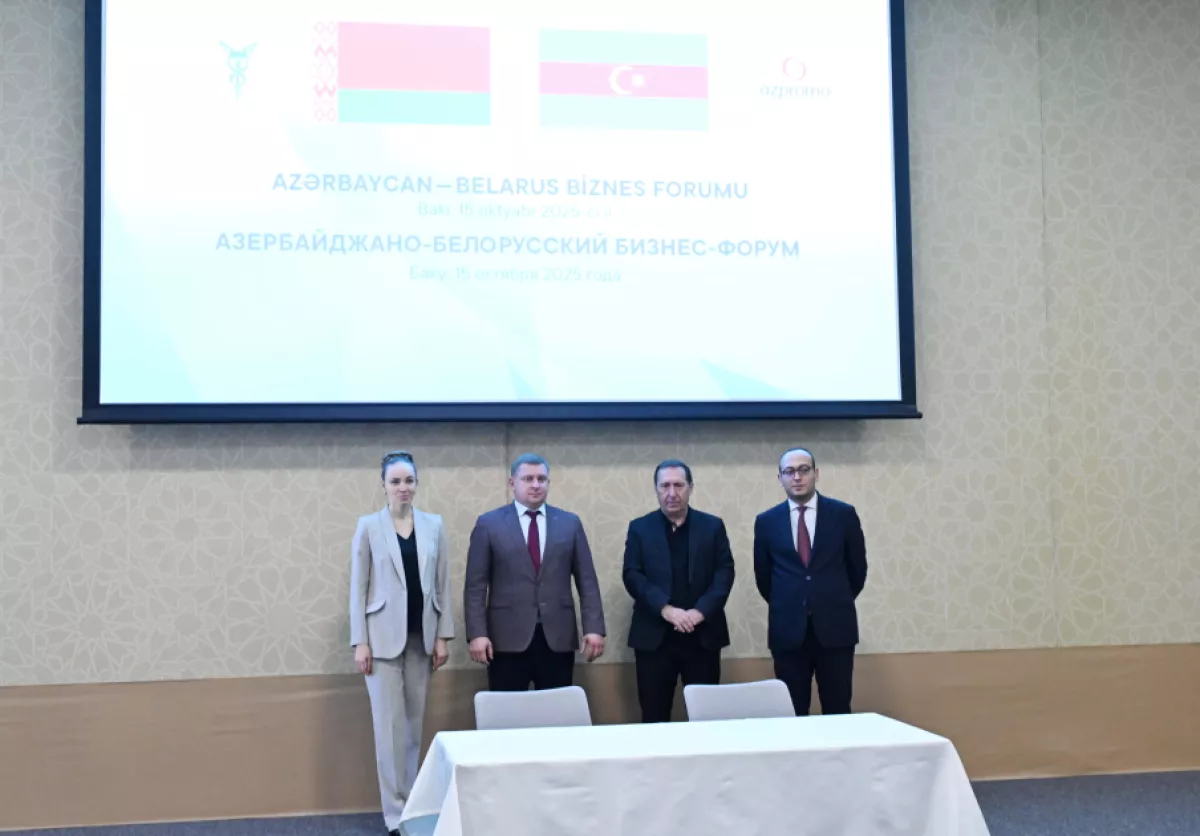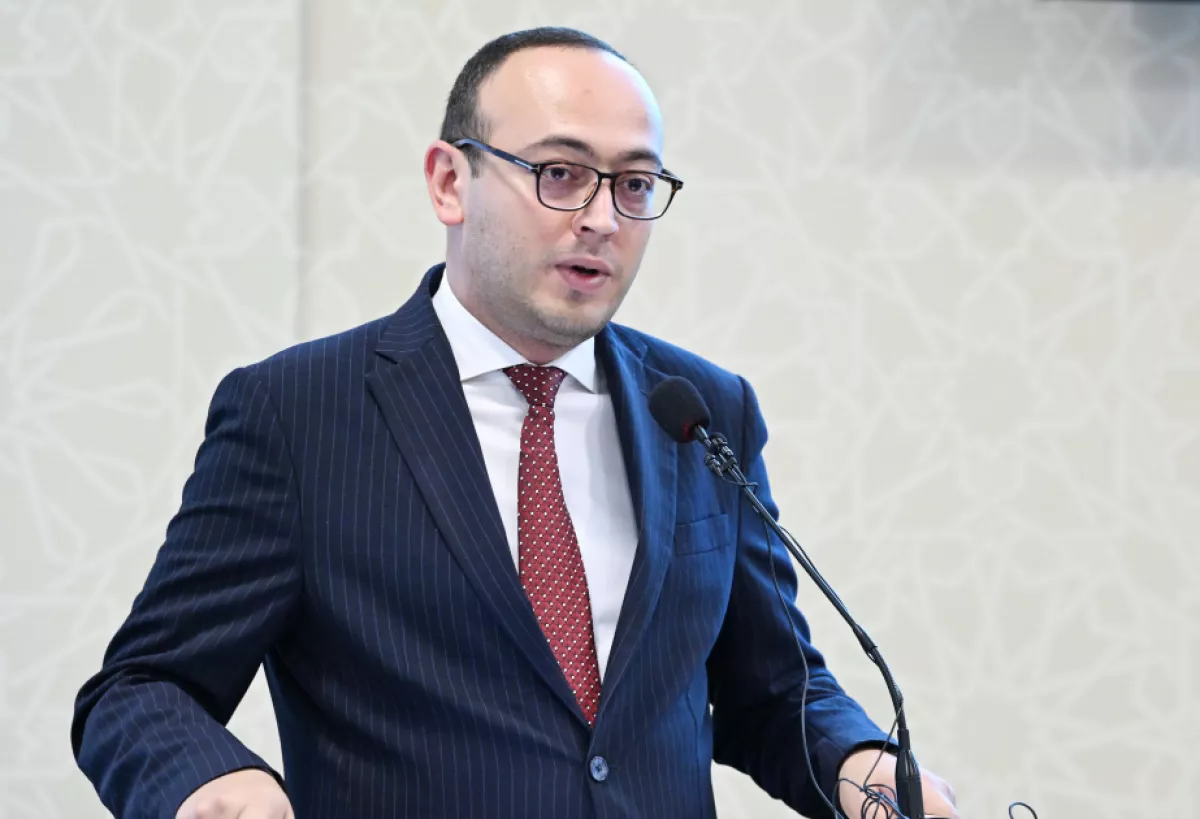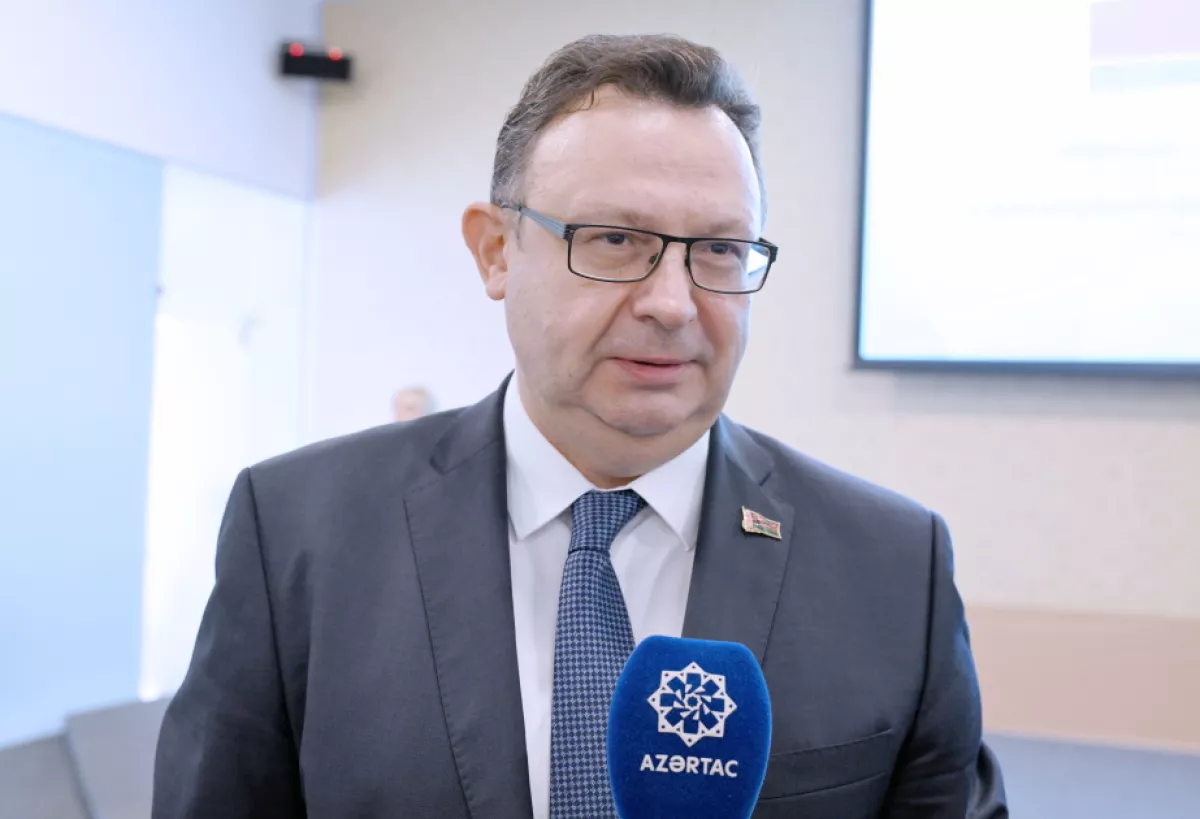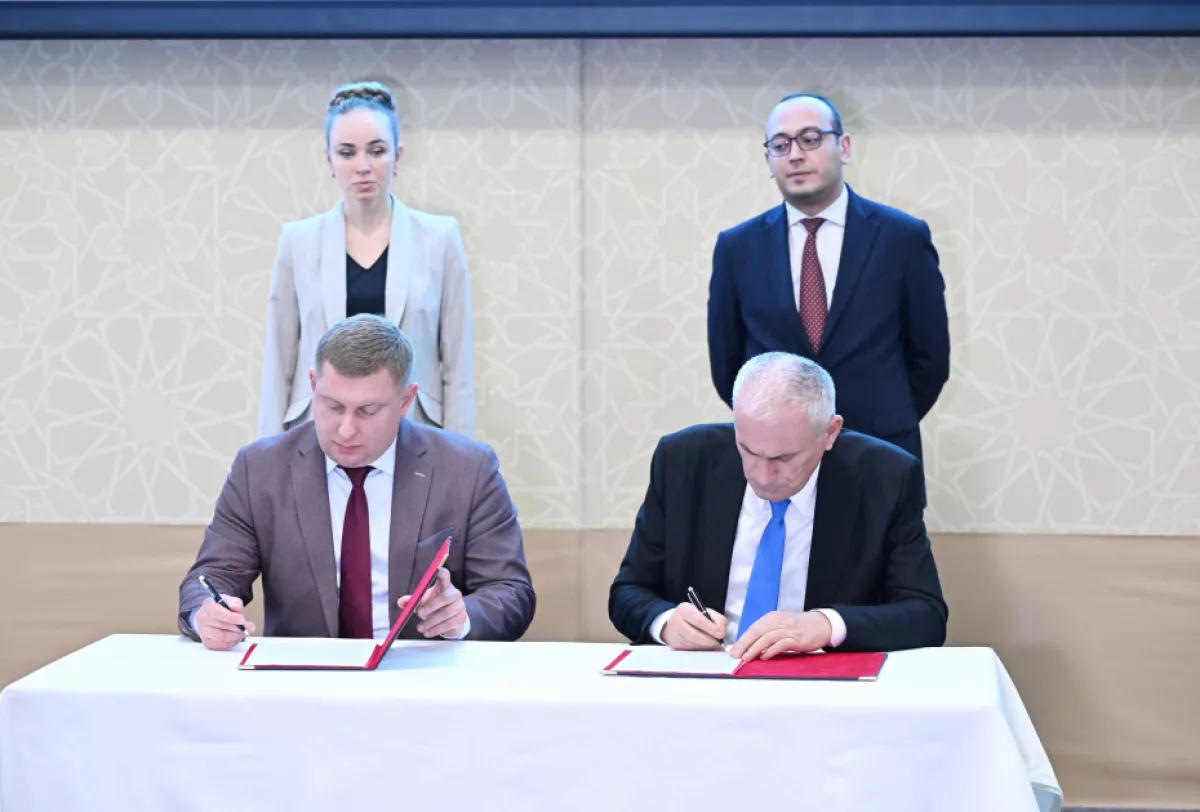Azerbaijan, Belarus expand strategic trade, industrial cooperation From dairy to technology
Over the past two decades, Azerbaijani–Belarusian trade and economic relations have taken on a strategic character. A distinctive feature of these relations is the high level of government support for all initiatives undertaken, along with a willingness to expand cooperation in investment and industrial projects. The steady development of these positive trends was once again confirmed during the Azerbaijani–Belarusian Business Forum held on October 15 in Baku, where bilateral agreements on cooperation in the food industry were signed.
In recent years, Belarus, together with Russia and Kazakhstan, has consistently ranked among Baku’s top three trade and economic partners in the post-Soviet space. The countries have built an extensive legal and contractual framework, with over 140 agreements regulating bilateral cooperation, including in business and commercial activities. Business communities and state-owned enterprises have long collaborated successfully across sectors such as manufacturing, agriculture, biotechnology, transport, tourism, pharmaceuticals, and IT. A key focus of bilateral economic relations remains the expansion and diversification of commercial and industrial ties.
As of early September this year, 127 Belarusian companies were registered in Azerbaijan, operating in industry, trade, construction, transport, and services, with 85 actively engaged. Conversely, the Azerbaijan Trade House operates in Belarus, promoting Azerbaijani products including wine, food, and fresh fruits and vegetables. This year, Azerbaijan’s domestic mineral water brand, Istisu, was also introduced to the Belarusian market.

Although trade between the two countries declined in the post-pandemic period for understandable reasons, 2024 saw a rapid recovery. According to Belarusian statistics, trade turnover grew by 46%, approaching the significant milestone of $500 million. While it remains uncertain whether this growth can be repeated in 2025, Tural Hajili, Deputy Executive Director of the Azerbaijan Export and Investment Promotion Agency (AZPROMO), reported that bilateral trade for January–August 2025 reached approximately $274 million.
“The consistent implementation of the 2024–2025 roadmap, approved last year at the 14th meeting of the Joint Intergovernmental Commission, is actively fostering trade, economic, and investment ties between our countries. Azerbaijan’s exports to Belarus increased by 77%, reaching $52 million,” noted Hajili. “Azerbaijan is ready to provide full support to all stakeholders to further strengthen business cooperation.”

Hajili also highlighted that up to 80% of Azerbaijan’s tractor fleet today consists of Belarusian-made agricultural machinery. Over 18 years of collaboration at the Ganja Automobile Plant (GanjaAZ), more than 14,000 Belarusian tractors have been assembled, along with around 4,000 units of other equipment, including MAZ, MZKT, and AMKODOR vehicles.
Last year, GanjaAZ signed a trilateral agreement with the Minsk Automobile Plant (MAZ) and Belarusian company Pozhsnab to assemble various types of emergency rescue and fire-fighting vehicles in Azerbaijan. Long-term plans also include the joint production of grain harvesters and passenger transport.
“In May of this year, a contract was signed between GanjaAZ and MAZ for the supply of kits for cargo-passenger vehicles. At the same time, joint production of spare parts is being established, and a service centre is being created in the East Zangezur and Karabakh economic zones to maintain Belarusian machinery,” Hajili emphasised.
Recently, a joint venture (JV) for elevator assembly was established in Azerbaijan. At the JV’s facilities, alongside the supply of Belarusian components from OJSC Mogilevliftmash, production of individual parts and components is planned. “Joint work on elevator equipment has already moved into the practical stage: in October last year, an agreement was signed for the joint production and sale of elevators in Azerbaijan. In the first stage, the assembly of 200 elevators is planned for this year,” Hajili told participants at the business forum.
Notably, Baku also sees Minsk as a key partner in projects aimed at reviving the Karabakh and East Zangezur economic regions. Various partnership models are being developed for the establishment of agro-processing and veterinary enterprises, as well as the construction of smart villages and agricultural settlements.

“Belarus intends to take an active part in the reconstruction and development of Azerbaijan’s liberated territories: large-scale infrastructure projects are being implemented in these areas, new jobs are being created, and conditions for a full-fledged life are being established, and Belarus is keen to be part of this process,” said Dmitry Pinevich, Belarusian Ambassador to Azerbaijan, at the business forum.
The head of the diplomatic mission emphasised that Belarusian specialists are already working in the Aghdam district, where they are designing a residential town and exploring the possibility of participating in joint projects at the Aghdam Industrial Park. At the same time, joint production of spare parts is being established, and a service centre is being created in the Karabakh and East Zangezur economic zones to maintain Belarusian machinery.
The ambassador noted that industrial cooperation aimed at establishing joint production remains a priority for Belarus: “Such projects strengthen the potential of both sides and allow for a more sustainable presence in the market under the ‘Made in Azerbaijan’ label — a mark of quality and trust.”

Pinevich emphasised that both sides are considering the possibility of signing agreements on the establishment of joint and international production facilities, which would enhance efficiency and expand the economic presence of Belarus and Azerbaijan in external markets. “We aim to develop joint ventures that will become part of international industrial platforms. This creates a foundation for long-term cooperation and strengthens the production potential of our countries,” the ambassador noted, stressing that the renewed investment projects are focused on sustainable development and the introduction of modern technologies, which will significantly increase productivity and reduce costs.
The joint business forum, organised by AZPROMO and the Minsk branch of the Belarusian Chamber of Commerce and Industry, was attended by representatives of government agencies from both countries, as well as around 40 private companies operating in logistics, construction, the food industry, and other sectors.
A key outcome of the B2B negotiations held during the forum was the signing of several bilateral cooperation agreements aimed at strengthening partnerships in agriculture and the food industry. Notably, agreements were signed between OJSC Rogachev Milk Canning Plant and two Azerbaijani companies, LLC Foodini and LLC Yaylaq, for the supply of canned dairy products, butter, and powdered milk.








